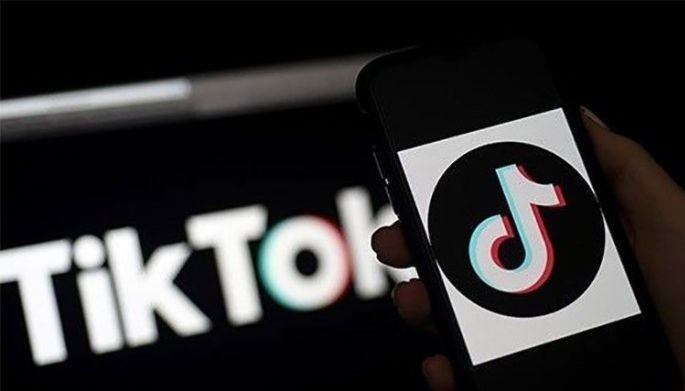A unanimous US Supreme Court decision allowed a law banning TikTok to stand.
TikTok must be sold to a non-China-based company. The SCOTUS ruled that the risks to American national security, as a result of the Chinese government’s control of TikTok, are more significant than the argument that the law restricts free speech. TikTok poses the same danger to our national security.
TikTok went dark in the US last Saturday but was back on line on Sunday. President Donald Trump signed an executive order delaying the TikTok ban for 75 days.
The reprieve gives TikTok time to negotiate a sale that would give the US at least 50 percent ownership control.
The Chinese owners have indicated they are not inclined to sell TikTok but Trump said without US approval, there is no TikTok. The Chinese government has also earlier indicated that they will not allow ByteDance, TikTok’s owner, to export its algorithm, which is the heart of TikTok and what makes it so powerful.
What is an algorithm? In simple terms, it is a set of rules and data that determines what content users see on a platform. Social media algorithms, like TikTok’s, analyze a user’s online behavior, such as what they like, comment on, or share and even the length of time they watch a video.
All this information is used to decide what content to show the user. Algorithms personalize the user’s experience, so no two users see the same content.
Facebook, X, Instagram and other social media platforms operate the same way. TikTok’s algorithm is just somehow a lot better than everyone else’s in doing what they all do.
ByteDance, being Chinese-owned, has raised national security concerns. There is nothing racist about this. Simply, the Chinese communist government tightly controls all Chinese companies which effectively become extensions of the Chinese Communist Party or the state.
There is a Chinese law that compels private companies to cooperate with the government when called upon. This is also why Huawei, which provided equipment to our telcos, and yes, the State Grid of China, pose national security risks for us too.
The Chinese government could demand data collected on American (or Filipino) users of TikTok or help tweak the algorithm to generate favorable public opinion on an issue important to China.
The TikTok algorithm is already biased in favor of China’s national policies. Videos negatively depicting China’s human rights abuses are more difficult to find on TikTok than other rival networks, a new study finds.
TikTok users in the US see less “anti-China” content than the same searches on Instagram and YouTube, according to a new study from the Network Contagion Research Institute (NCRI) at Rutgers University.
“What sets TikTok apart is that the accurate information about China’s human rights abuses is most successfully crowded out on the platform,” says Joel Finkelstein, director and chief science officer of NCRI.
It is most disturbing that in a survey conducted alongside the study, people who used TikTok for three hours or more daily were significantly more positive about China’s human rights record than non-users.
The idea that TikTok could be used to spread pro-China messaging to American citizens, especially young people, has been a key factor in the bipartisan congressional bill seeking to ban the app.
TikTok, like all social media apps, can be used to push propaganda and affect a user’s thought processes without the user being aware that this is happening. TikTok gives Beijing direct access into the minds of users, American or Filipino.
In his congressional testimony, FBI director Christopher Wray warned of China’s ability to “conduct influence operations” on TikTok, saying those efforts would be “extraordinarily difficult” to detect.
With about 170 million TikTok users in the US, the national security threat is real, especially because China is their strategic adversary, and is deemed by most security scholars as the most likely threat for a great power war with the US by 2050.
Here is how one analyst puts it: “Imagine the US gets into a conflict with China, and they have this data on 170 million Americans. The comparative advantage this would provide the CCP to use against American citizens is unmatchable.”
There is the danger of digital subversion. TikTok also gives China the advantage of being able to go directly to the American people and convince them that their government’s policy toward China is wrong.
During our last presidential elections, Leni Robredo, the main opposition candidate, emphasized her anti-China stance, particularly on the issue of the South China Sea. BBM, on the other hand, indicated he would rather deal with Beijing bilaterally.
TikTok and social media in general were used to spread misinformation and disinformation. Beijing most likely unleashed their trolls to support BBM/Sara thinking that the UniTeam would be friendly to them. But luckily, BBM changed his mind on China and on the partnership with Sara.
Today, TikTok could use its algorithm to brainwash our people without them even noticing that our position on WPS may be undermined.
And/or TikTok could be the digital equivalent of Fentanyl injected into the brains of kids. TikTok’s algorithm deliberately feeds kids addictive content that interferes with sleep, school and face-to-face socializing necessary for their personal development.
A high school student wrote in the New York Times: “I’m a 17-year-old TikTok junkie, and I wholeheartedly support a law that would sever me forever from my fix… what worries me most right now is the future of my generation.”
TikTok is too big to ban. Too many Filipinos earn a living using this platform. But we need to regulate the likes of TikTok. We cannot lose to our adversaries because we were totally oblivious of how social media was used against our national interest.
We need an army of trained people to monitor social media. This is our first line of defense in today’s world where social media can wreak havoc upon our nation. We need to wake up!
Boo Chanco’s email address is bchanco@gmail.com. Follow him on X @boochanco


